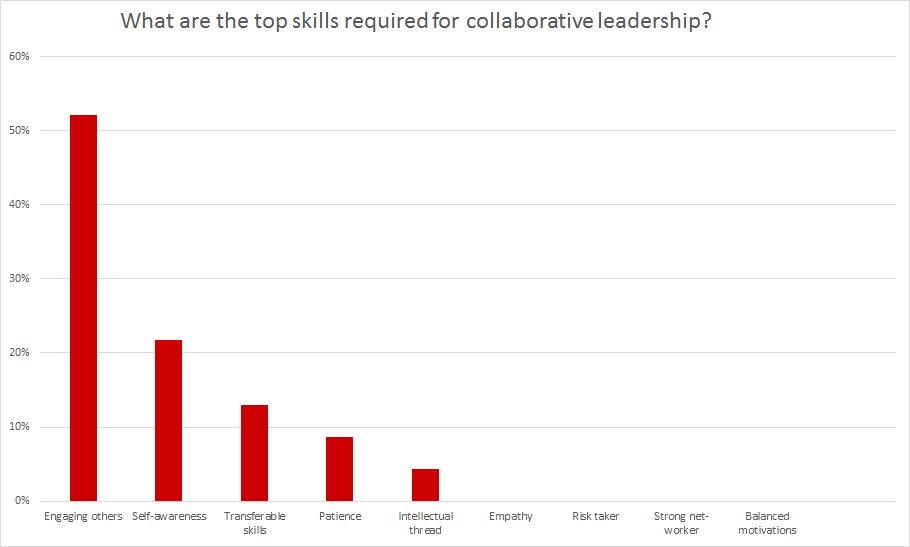What are the top skills required for collaborative leadership?
- 2 Min Read
The role of collaborative leadership is growing substantially, and becoming a necessity given the nature of adaptive challenges we now face across business. As organisational success becomes increasingly dependent on ability to adapt and manage organisational change– it is crucial that leaders full understand the importance of cross-cultural collaboration and communication at different levels. A […]
- Author: Unzela Khan
- Date published: Aug 9, 2017
- Categories

The role of collaborative leadership is growing substantially, and becoming a necessity given the nature of adaptive challenges we now face across business.
As organisational success becomes increasingly dependent on ability to adapt and manage organisational change– it is crucial that leaders full understand the importance of cross-cultural collaboration and communication at different levels.
A number of skills important for collaborative leadership have been highlighted across various field of research. A survey launched by HRD Connect aimed to understand the skills with most business impact at this time.
The survey asked: “What are the top skills required for collaborative leadership?”
The survey revealed that engaging others: relationship building and communicating clearly was fundamentally more important that all other collaborative leadership skill. This was ranked by over 52% of people as most important.
A good collaborative leader needs to be able to build and maintain relationships. Communicating clearly gives the ability to guide teams and speed up the decision-making process.
Engaging doesn’t just mean the ability to motivate and ensure people are focussed, it also means the ability to involve others. When a collaborative leader is able to involve, all voices are heard and ideas are shared.
The power to build relationships and communicate clearly also ensures a stronger influence within your organisation, therefore increasing your own involvement.
Figure 1: Survey results, click to enlarge
The importance of self-awareness
Ranked in second place is self-awareness. The importance of self-awareness is not simply limited to knowing you are capable. Instead, it is the knowledge of your strengths and weaknesses, with the ability to put aside your ego.
Forbes recently published an article titled “If you want your team to collaborate, self-awareness is a game changer.”
When observing a board meeting, Yosh Bier writes: “Nearly half the team members were not aware of what they were expressing non-verbally. Furthermore, they had little awareness of, or concern for, the impact their behaviour had on others,” suggesting the importance of knowing when to put aside the ego.









